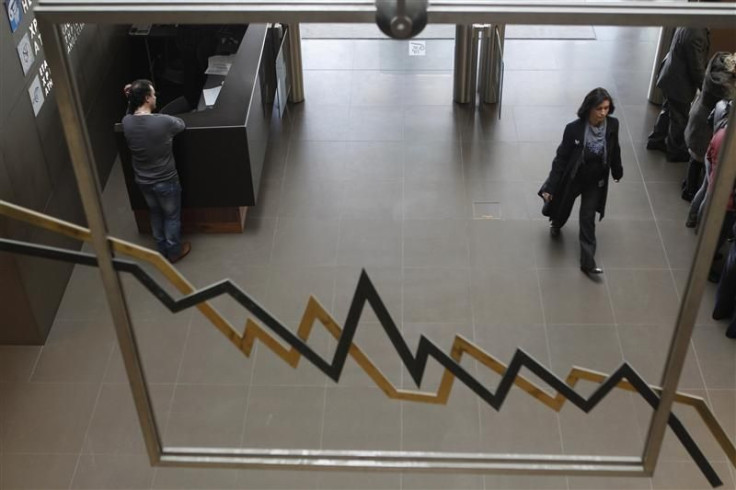Stock Markets In Spain, Italy, Greece Rise In Spite Of Headlines

Even a dead cat will bounce if it's dropped from a great enough height.
That maxim of high finance, which is sometimes used to explain jumps in stock prices that seem out of sync with market conditions, was apparently at play Thursday in the equity markets of Spain, Italy and Portugal. With no more room left to fall, stocks rose in those three countries, propped up in spite of horrendous headlines across the financial media.
In Madrid, at the center of the latest stage of the euro zone crisis, the benchmark IBEX-35 index closed up 1.22 percent for the day.
We've had a tricky session today ... The bourse has been two-faced, even though it is still fundamentally of the same character, José Luis Cárpatos, a market analyst at Madrid-based research firm Serenity Markets, wrote in an afternoon note. It's shown us its pleasant face but, in reality, behind that mask, it keeps the same old face, ravaged by suffering, by the very grave crisis the euro zone finds itself immersed in.
Noting the action in the sovereign credit market was devastating, Cárpatos explained the bounce could likely be attributed to low volume in trading, as well as short-covering by investors wishing to take their profits from previous negative bets off the table. In addition, he warned that taking [the current crisis] lightly would be a mistake, one that is commonly made by politicians. It is very grave, and we are approaching the point of no return.
The Milan Stock Exchange, for its part, also rose, and the benchmark index for the largest bourse in Italy ended up 1.47 percent for the day.
While the action in the Spanish and Italian bourses was puzzling, it couldn't hold a candle to Greece, where the The Athens Exchange (ATHEX) general index ended a stunning 10.12 percent higher, with specific issues rising over 20 percent. Several media outlets reported the frothy market sentiment came from rumors that a set of secret opinion polls showed the pro-bailout New Democracy party had a comfortable lead over rivals in the upcoming weekend's election.The expectation would be such an outcome would prevent Greece from leaving the euro zone.
(By law, public opinion polls have not been allowed in Greece since June 1, so any recent polls would have to be secret.)
Battered issues of Alpha Bank were up 29.75 percent, for example, even amid widespread reports of the generalized bank run in Greece getting worse by the minute.
Dimitris Pantulis, an expert on Greek politics, told news agency EFE that, in a country where bluffing is part of the political agenda, the markets were probably in on it too.
There's two explanations: Either the asset markets are sure [conservative pro-bailout party leader] Samaras will be victorious, or they want to euphorically show something that is not true, so that people think the markets are happy with Samaras.
© Copyright IBTimes 2024. All rights reserved.





















